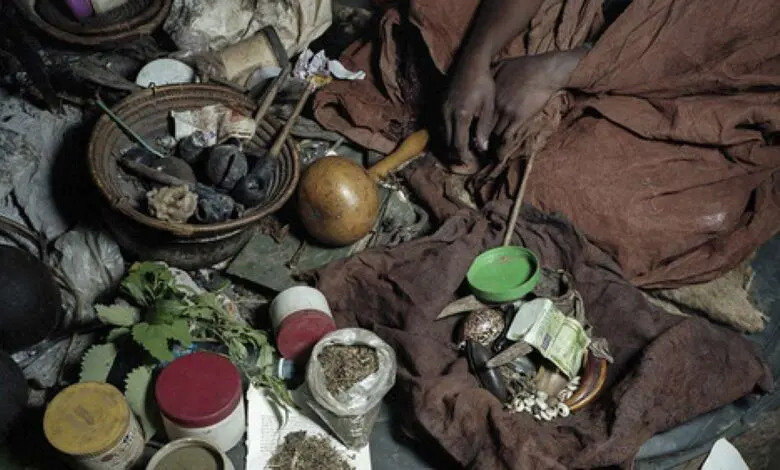CRIME
Nigerians raise concern over the rising spate of ritual killings

A few months before the 2023 general elections in Nigeria, there was a noticeable increase in ritual killings, which many attributed to politicians seeking to secure power through any means, including human sacrifices.
Investigations have revealed that these ritual killings have expanded beyond traditional methods of kidnapping from homes, roads, or during transit. There have been alarming reports of such crimes involving hospitals, where there are instances of newborns being targeted.
Some nurses are suspected to be complicit, collaborating with politicians and others in the illicit trade to steal babies shortly after birth. The mothers of these babies are often deceived into believing their infants were stillborn, and, lacking the means to arrange proper burials, they accept this false narrative.
A concerned Nigerian highlighted that doctors should be vigilant about the nurses they employ, particularly in private hospitals, due to the prevalence of these crimes. “Doctors need to be cautious about their nursing staff and maintain constant vigilance. It is difficult to judge a person’s intentions just by their appearance,” the individual advised.
On August 20, Awesu Mojisola Morufat, a recent graduate of the Kwara State College of Health Technology in Offa, was found dead in a bush in Ilorin, Kwara State. She had been reported missing a week earlier and was believed to have been murdered for ritual purposes.
Prophet Adeniyi Adebayo, also known as Prophet Ogunse, and his son, Promise Ogunse, have been detained in connection with the crime, with Promise identified as the primary suspect. According to reports, Promise invited Morufat to a hotel in Ilorin, where he allegedly killed her before fleeing.
In another incident on July 10, Aliyu, a self-proclaimed cleric from Omi-Ifon in Ondo State, was caught by the infant’s mother grinding the exhumed remains of her year-old child. The mother, acting on a suspicion after noticing disturbed soil at her child’s grave, discovered Aliyu grinding the remains in his home. This cleric had previously cared for the child before their death and burial.
In June, the Ondo State Police arrested Yusuf Adenoyin, a 31-year-old, for possessing eight human skulls and fresh human flesh. In May, Dolapo Babalola, a 39-year-old fruit seller, was detained in Okeigbo for killing five people, including his friend and cousin. In March, Oluwafemi Idris was caught with human organs in Akoko, and on April 27, the Lagos State Police arrested a 10-member gang led by Ademola Akinlosota, involved in ritual killings and grave desecration.
Earlier in March, Kwara State Police apprehended Atolagbe Yemi Oje, who was accused of raping and murdering Mayowa Ajiboye for ritual purposes. The police described Oje’s actions as monstrous and barbaric.
Ritual killing is not confined to any specific region or demographic but is a nationwide issue. An Islamic cleric, Ustaz Jamiu Aro, condemned ritual killings, stating that Islam strictly prohibits such acts. He criticized the legal system for its slow and often ineffective justice processes, which he believes allow ritual killers to evade punishment. He also noted that ritual killers often turn to such practices due to a lack of faith in prayer and a desire for quick wealth or power.
Pastor Hezekiah Olujobi, Director of the Centre for Justice, Mercy, and Reconciliation, echoed similar sentiments, attributing the rise in ritual killings to the relentless pursuit of power and wealth through demonic means, especially during election periods.
Security expert Dr. Davidson Akhimien emphasized the need for increased security awareness and education from an early age, recommending that security education be integrated into the school curriculum.
Dr. Leonard Okonkwo, a Consultant Psychologist at LASUTH, attributed the rise in ritual killings to the societal celebration of wealth without questioning its origins. He explained that many individuals involved in these crimes live in denial and suffer from self-guilt, callousness, and a lack of conscience.
Overall, the increasing trend of ritual killings in Nigeria is attributed to a combination of societal, legal, and psychological factors that need urgent and comprehensive addressing to combat this growing menace.





















You must be logged in to post a comment Login